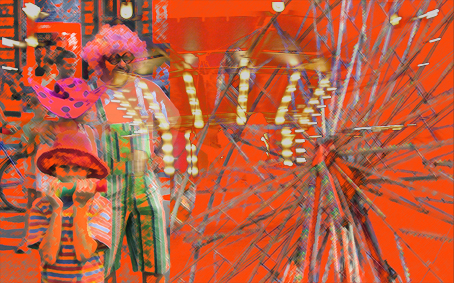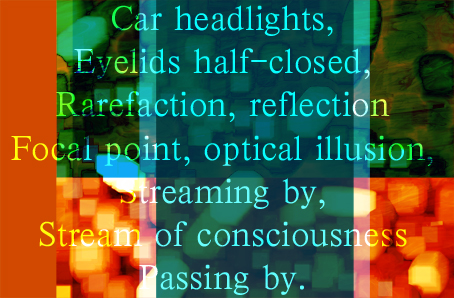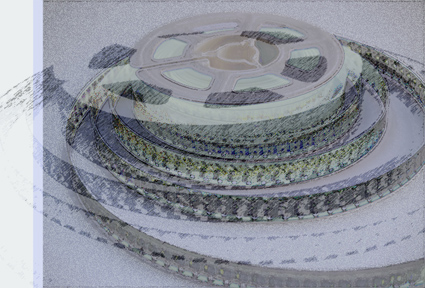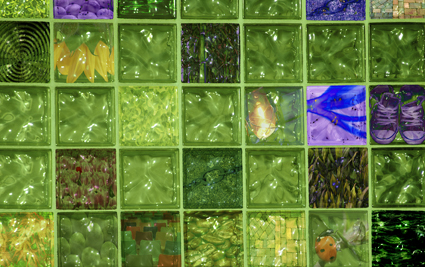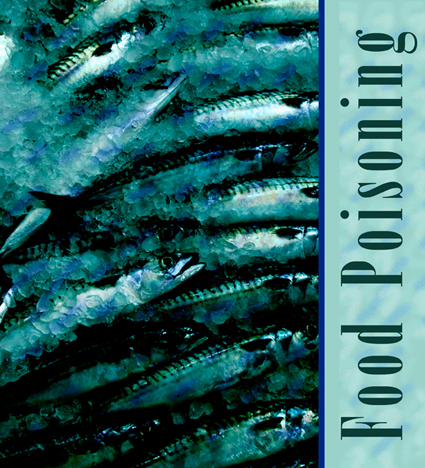Charlotte from
Charlotte's Web tagged me on this meme. Since I’ve never been tagged before and I am always willing to try something once, if not twice: think giant roller coaster ride, eating rubbery whole squids swimming in garlic and a tab of oil, a few fellows along the way, here I go…
Hardback or trade paperback or mass market paperback? Anything. I am not discriminating in any way. This also concerns some of my choices in books as well, not just in the form of the books.
Amazon or brick and mortar? Now that Amazon seems to be doing very-well-thank-you, I am back to purchasing books from two wonderful bookstores. One is just down the street from our apartment and the other (here) is just down the street in mind. The owners of both stores really really know their stuff and are interesting people to boot.
Barnes & Noble or Borders? Been to Barnes and Noble in NYC and Borders in Ottawa and Montreal. This was years ago, at a time when ordering English books in Germany was a Very Expensive affair and it took forever (weeks, if not months) for the books to arrive. So, a trip to Barnes & Noble or Borders was like visiting Disney World. I came away, literally after spending hours there, feeling a bit nauseous and contrite with sinful quilt. I can’t explain this at all.
Once, when Nature Girl was three years old, she lost her favourite stuffed bear during a visit to Borders in Ottawa. We went back every day for a week to ask whether someone had brought the lost stuffed animal back. Each day we had to explain to our teary two year old that maybe her bear would be back tomorrow and drag her out of the store by tempting her with a visit to some playground or ice cream shop. By chance we decided to go through the whole store ourselves and, much to our surprise we found Nature Girl’s bear sitting amongst the animals-for-sell shelf.
Bookmark or dogear? Bookmark: a crumbled receipt, a ripped corner of an old envelope, and now real bookmarks kindly placed in each purchased book from my two bookstores. Never dogear. This is considered very bad manners in our family; comes second to writing in the margins.
Alphabetise by author, or by title, or random? Random doesn’t even do my (non-) method justice. It is someone between haphazard to pure flagrant chaos.
Keep, throw away or sell? Keep only those books that I’ll read over and over again. The rest are given away to friends or a certain second-hand bookstore in Luebeck. I could sell the books to the storeowner, but I want to encourage the owner in her business venture. I don’t like receiving money on second-hand books because the only way the authors’ receive money for their work is if I buy their work new. I know, this is rather a silly standpoint, not very logical, but so is life sometimes.
Keep dust jacket or toss it? Toss.
Read with dust jacket on or remove it? See above.
Short story or novel? Definitely novel, though there have been some collection of short stories along the way.
Collection of short stories or anthology? If I have to read short stories, I definitely prefer a collection. I don’t like the stop/start of an anthology and with a collection I get some sense of authorial voice even if the characters and narratives change.
Harry Potter or Lemony Snicket? Not Harry Potter unless it turns out, like Nature Girl and I suspect, that Dumbledore lives. Overall, not Harry Potter because, unlike most wonderful children fantasy series, there is no true wise and guiding adult mentor in the series; someone confirming how strong and resourceful the children are to meet the challenges they face (Dumbledore always manages to be missing when needed). Neither Lemony Snicket because, like Harry Potter, the children are left to their own without any meaningful assistance. My vote goes to Artemis Fowl: hurrah for Butler.
Stop reading when tired or at chapter breaks? When my eyelids close and I continue to read and then realise that I am not actually reading any more, but making things up, I finally put the book away.
“It was a dark and stormy night” or “Once upon a time”? Both.
Buy or borrow? Both.
New or used? New.
Buying choice: book reviews, recommendation or browse? Love recommendations, they don’t even have to be well-based. Will ask a friend or stranger about their choice of book and will give it a try, just on a whim.
Morning, afternoon or nighttime reading? Any time, situation, location, or state of wakefulness.
Favourite series? A whole slew of American murder mystery writers. All of the books lent to me by my dear friend around the corner from us. I’m very bad with names, but Stephanie Plum’s series, the series of the women in the southern States (Virgina) who has a close relationship with her house ghost/ex-slave of the family; who is concerned that she procreate, the Malory series, the west coast caterer with her gay handsome business partner, the private detective (west coast again) with her delinquent niece series, the folk art museum curator series who murders have a form of a quilt patternl. Gosh, and so much more.
Favourite children’s book? In my childhood: the Narnia series, The Blue Castle, The Girl of Limberlost, The Secret Garden, The Swallows & Amazons series. During my children’s lifetime: just about everything from Astrid Lindgren or Emil
Erich Kästner, Lukas und der Lokomotiv series, Petersen and Findus series, Philip Ardagh and the six books of the Eddie Dickens Trilogy, Leon Left Hand, and Artemis Fowl series. The list goes on and on because I never stop, and I’ll never stop, reading children’s literature.
Favourite book of which no-one has heard? The Book of Ebenezer Le Page, by G. B. Edwards
Favourite books read last year? Sorry, my brain is sore tonight and I just can’t remember though there were quite a few.
Least favourite book finished last year? These I definitely forget on principle.
What are you reading now? As usual a whole slew of them: What was Lost, Catherine O’Flynn, The Shadow of the Sun, My African Life, by Ryszard Kapusconski, If You Want to Write, A Book about Art, Independence and Spirit, Brenda Ueland, book 2 from the Christopher J. Sansom series
What are you reading next? On the slide in next shelf of books to read: Mulit-media Learning, by Richard E. Mayer, My Life, Anton Chekhov, The Tenderness of Wolves, Stef Penney, Quarantine, Jim Crace, Moon Tide, Dawn Clifton Tripp, The Ventriloquist’s Tale, Pauline Melville
P.S.
There are a few people I would like to tag with this meme, but the jury is out, as far as I am concern, about whether or not memes are a bit like chain letters (which I despise). I’m doing this for Charlotte and I will leave this at that.



